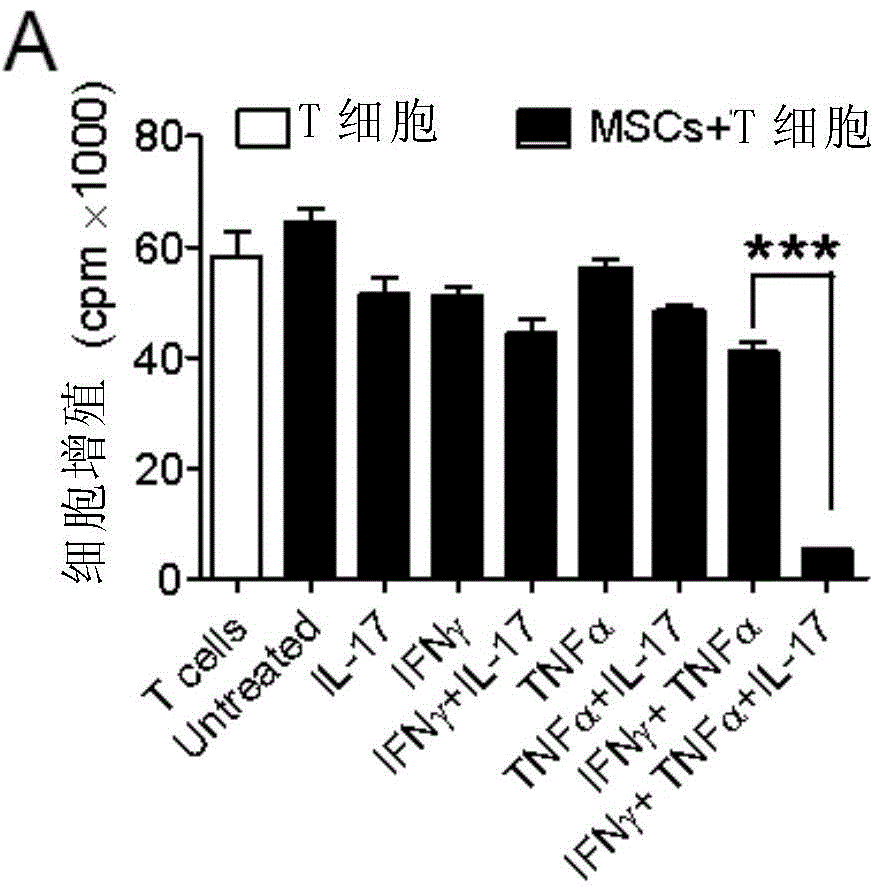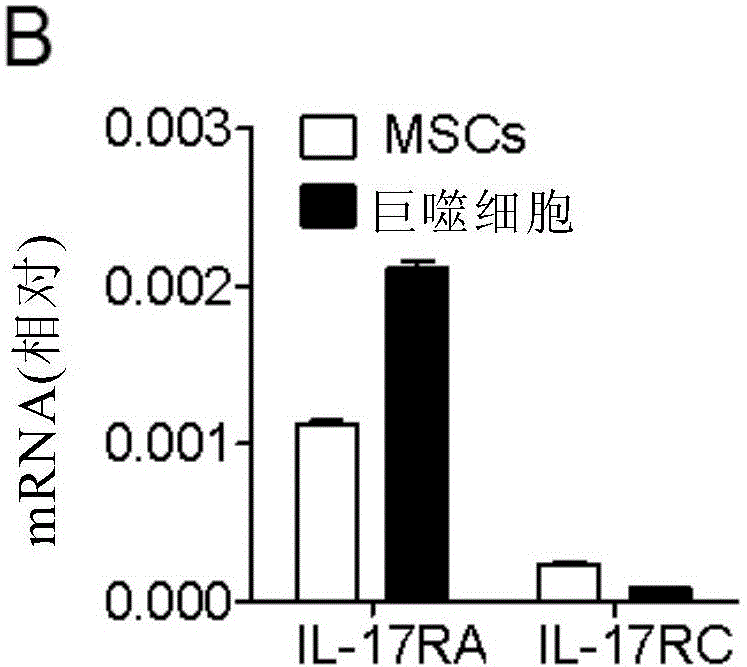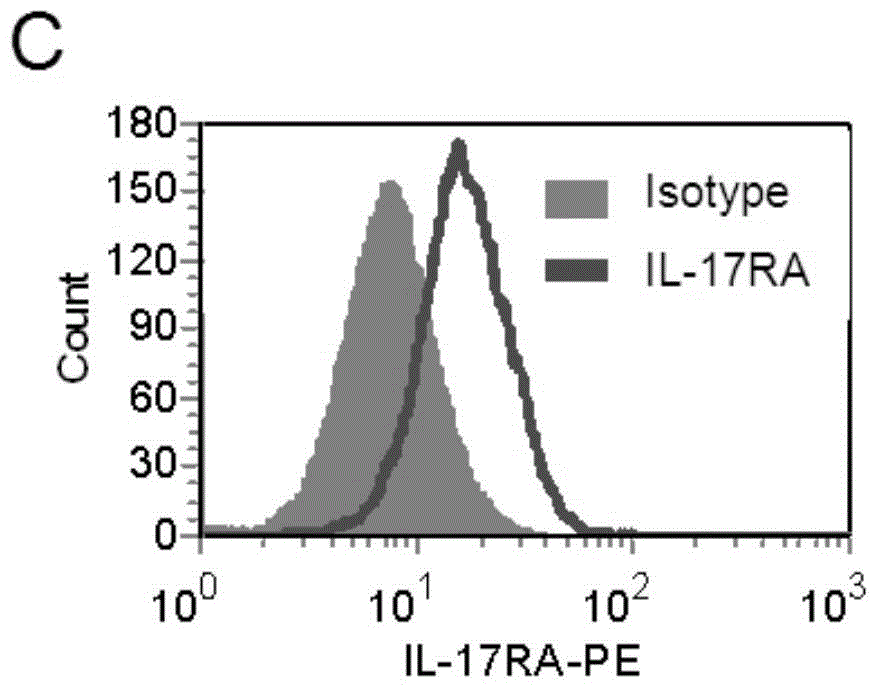Application of IL-17 in improving mesenchymal stem cell immunity inhibition function
An immunosuppressive, stem cell technology, applied in the field of biomedicine
- Summary
- Abstract
- Description
- Claims
- Application Information
AI Technical Summary
Problems solved by technology
Method used
Image
Examples
Embodiment 1I
[0284] Example 1 IL-17 can enhance the immunosuppressive function of MSC
[0285] Studies have shown that the immunosuppressive ability of mesenchymal stem cells is not inherent, but acquired under the induction of inflammatory cytokines, including IFNγ, TNFα, IL-1α and IL-1β. Under the stimulation of inflammatory cytokines IFNγ and TNFα, mesenchymal stem cells secrete a large amount of iNOS and chemokines. Chemokines recruit T cells to the surroundings of mesenchymal stem cells, and the metabolite NO of iNOS exerts the effect of inhibiting T cell proliferation. effect. As we all know, IL-17 is a pleiotropic pro-inflammatory cytokine, which plays an important role in the pathogenesis of many infectious diseases, inflammatory diseases and autoimmune diseases. The present inventors added inflammatory cytokines IFNγ and TNFα to mesenchymal stem cells cultured in vitro, or added IL-17 on this basis, and observed the effects of these cytokines on the immunosuppressive ability of m...
Embodiment 3I
[0297] Example 3 IL-17 enhances the immunosuppressive function of MSC independent of the effect on T cell apoptosis
[0298]The above studies have shown that IL-17 can cooperate with inflammatory cytokines IFNγ and TNFα to enhance the immunosuppressive function of MSC, and this function is mainly reflected in the inhibition of T cell proliferation and depends on the activity of iNOS (Figure 1, Figure 2) . In addition, MSCs can induce lymphocyte apoptosis in the presence of inflammatory cytokines IFNγ and TNFα, and this process also depends on NO. In order to determine whether this enhanced MSC immunosuppressive effect of IL-17 is dependent on the effect on T cell apoptosis, the inventors stimulated MSCs with IFNγ+TNFα or IFNγ+TNFα+IL-17 for 12 hours in advance, and then stimulated them Co-culture with A1.1 cells at a ratio of 1:10, collect A1.1 cells after 12 hours, and detect cell apoptosis. The inventors found that the proportion of apoptotic cells was lower than 0.5% when...
Embodiment 4I
[0301] Example 4 IL-17 cooperates with inflammatory cytokines to up-regulate the expression of iNOS in MSCs
[0302] Previous studies have shown that iNOS and chemokines are the core molecules that mediate the immunosuppressive function of MSCs, and the induction of inflammatory cytokines IFNγ and TNFα is required to initiate the expression of iNOS and some chemokines in MSCs. The above results of the present inventors show that the ability of IL-17 to enhance the immunosuppression of MSCs depends on the activity of iNOS. The present inventors treated MSCs with IFNγ+TNFα or IFNγ+TNFα+IL-17, and then measured the expressions of iNOS and chemokines by fluorescent quantitative PCR and Western Blot. The results showed that IL-17 could cooperate with IFNγ and TNFα to significantly promote the expression of iNOS ( Figure 4A , B, C, D). At the same time, the inventors also detected the mRNA expression of some chemokines related to MSC immunosuppression, including CCL2, CCL5, CXCL9...
PUM
 Login to View More
Login to View More Abstract
Description
Claims
Application Information
 Login to View More
Login to View More - R&D
- Intellectual Property
- Life Sciences
- Materials
- Tech Scout
- Unparalleled Data Quality
- Higher Quality Content
- 60% Fewer Hallucinations
Browse by: Latest US Patents, China's latest patents, Technical Efficacy Thesaurus, Application Domain, Technology Topic, Popular Technical Reports.
© 2025 PatSnap. All rights reserved.Legal|Privacy policy|Modern Slavery Act Transparency Statement|Sitemap|About US| Contact US: help@patsnap.com



